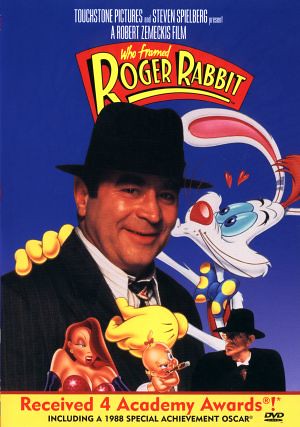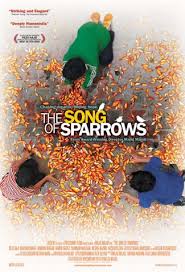In my ongoing quest for inspiration to write, I'm finally sitting down to read some past winners, starting with the epic (164-page)
Inglourious Basterds, written and directed by Quentin Tarantino. Having already seen the movie and enjoyed it, I thought I would take a reverse perspective and, instead of seeing how written words adapted to the screen, see how what was on the screen originated. I found this helpful on a number of levels.
Firstly, there was the issue of length. Being 44 pages longer than my professors recommended throughout college, the script consists of long, but intense, dialogue scenes, divided into five chapters. Chapter One and Two are nearly twenty pages each, Chapter Three nearly forty, Chapter Four fifty, and Chapter Five nearly twenty. Page 77 marks what could either be considered the midpoint or the first Plot Point, because it is the first time a character really makes a big decision. Each chapter abounds with long, descriptive, even editorial, paragraphs that convey a sense of the world and the history of the characters, something my professors, again, said never to do. The reason, they say, is to avoid imposing on the director, which, in Tarantino's case as writer/director, doesn't apply. Nonetheless, I found the content effective. For instance:
"However, simply by sight, you'd never know if he's been beating at this stump for the last year or just started today." (3)
"After living for a year with the sword of Damocles suspended over his head, this may very well be the end." (3)
"The human beings are the DREYFUSES, who have lived lying down underneath the dairy farmer's house for the past year. But one couldn't call what the Dreyfuses have done for the last year living. This family has done the only thing they could—hide from an occupying army that wishes to exterminate them." (11)
"Shoshanna isn't falling for the young German by any stretch. However, his exploits, as well as his charming manner, can't help but impress. But his referring to Goebbels as 'Joseph,' like they're friends, is all she needs to get on the right side of things. This young man is trouble with a capital T, and she needs to stay far fucking away from him." (55)
"Considering that Shoshanna grew up on a dairy farm, and the last time she was on a dairy farm, her strudel companion murdered her entire family, his ordering her milk is, to say the least... disconcerting." (68)
"Strangling the very life out of somebody with your bare hands is the most violent act a human being can commit. Also, only humans strangle, opposable thumbs being quite an important part of the endeavor. As Hans Landa stands, the sheer violence he had to call on to accomplish this task still surges through him. He tries to gain control of the trembling that is rippling through his body. He takes out a silver S.S. FLASK (filled with peach schnapps) and knocks back a couple of swigs. He holds his hand out in front of him. The TREMBLING is beginning to subside." (139)
Nonetheless, despite the lengthy descriptions and notes to self, this particular screenplay serves as an excellent example of how to cut content in the transition from script to screen. There are many pages in the script about how Shoshanna meets Madame Mimeux, the theater owner, and comes into her apprenticeship. There are pages of Shoshanna reflecting over her relationship with Madam Mimeux. None of them made it to the screen. Did the movie need them? Not really. All we needed to know was that, after escaping the murder of her family, Shoshanna found her way to Paris, changed her name, and acquired a movie theater. Plain and simple, no problem.
Tarantino also does something with scene headers that I appreciate, which is that, in a quickly paced scene, he does not insert full headers, but rather announces the transitions through sub-slugs: "FROM HERE ON WE GO BACK AND FORTH BETWEEN ALDO AND HITLER," "WE SEE JUST A SUPER-QUICK SHOT OF Goebbels FUCKING Francesca DOGGY-STYLE," etc. This removes some of the distraction caused by headings and lets the reader focus on the content.
A more minor, yet excellent, cut came about in the exposing of Bridget Von Hammersmark's espionage. In the script, Col. Landa unmasks her by interrogating a wounded soldier, revealed in a comic-book-like thought bubble. However, in the film, all he has to do is discover the signed napkin that Hammersmark gave to the same wounded soldier (now dead), and there's his answer with a few extra minutes to spare and no need to take us totally out of the movie into a comic book.
Finally, there are a few highlights that I would like to point out where Tarantino's skillful blending of literary description and dialogue reveals endless information about the characters and how the actors could approach the parts.
"COL. LANDA: Please, join me at your table." (10)
"He looks her in the face and, filled with tremendous guilt, because if he's successful tonight he's going to blow this cute french girl to smithereens, he says:
HIRSCHBERG
Grazie.
The cute Franch girl looks back at the goofy-looking Italian boy with slicked-back hair that makes him look kind of Jewish with tremendous guilt, knowing if she is successful tonight, she's going to burn him alive, and says:
SHOSHANNA
Prego." (135-136)
The performances came across powerfully, and what could easily have been long, tedious dialogue scenes crackled with tension and left me mesmerized by the characters. Regardless of the rules of directing, there is much to be said for the way Tarantino structured his film and put forth the extra lines to add further depth. Thus must be laid to rest the myths that a long script is a tedious script, that a writer can't have fun with
mise en scène, and that scenes over five pages are ineffective.


















